Discover DataFramed
DataFramed

DataFramed
Author: DataCamp
Subscribed: 5,521Played: 107,143Subscribe
Share
© 2022 DataFramed
Description
Welcome to DataFramed, a weekly podcast exploring how artificial intelligence and data are changing the world around us. On this show, we invite data & AI leaders at the forefront of the data revolution to share their insights and experiences into how they lead the charge in this era of AI. Whether you're a beginner looking to gain insights into a career in data & AI, a practitioner needing to stay up-to-date on the latest tools and trends, or a leader looking to transform how your organization uses data & AI, there's something here for everyone.
Join co-hosts Adel Nehme and Richie Cotton as they delve into the stories and ideas that are shaping the future of data. Subscribe to the show and tune in to the latest episode on the feed below.
Join co-hosts Adel Nehme and Richie Cotton as they delve into the stories and ideas that are shaping the future of data. Subscribe to the show and tune in to the latest episode on the feed below.
361 Episodes
Reverse
AI governance is becoming critical as organizations deploy more intelligent systems across their operations. With predictions of over a billion AI agents entering the workforce in the coming years, traditional governance approaches simply cannot keep pace. How do you ensure your AI systems are using data responsibly without slowing down innovation? What happens when an AI agent makes decisions that were never explicitly programmed? And how do you build governance processes that scale alongside rapidly expanding AI adoption while maintaining trust with customers and regulators?Blake Brannon is Chief Innovation Officer at OneTrust, where he leads product vision and strategic direction for the company’s AI-ready governance platform. He has been with OneTrust since 2017, previously serving as Chief Technology Officer, and has played a key role in scaling the platform to support privacy, data governance, risk, and responsible AI initiatives for large enterprises. Blake is based in Atlanta and holds an academic background from the Georgia Institute of Technology, with early research experience in network systems and wireless communications.In the episode, Richie and Blake explore AI governance disasters, the importance of consent and data use, the rise of AI agents, the challenges of scaling governance processes, the need for continuous observability, the role of governance committees, strategies for effective AI governance in organizations, and much more.Links Mentioned in the Show:OneTrustConnect with BlakeAI-Native Course: Intro to AI for WorkRelated Episode: From City Sewers to Sovereign AI with Russ Wilcox, CEO at ArtifexAIExplore AI-Native Learning on DataCampNew to DataCamp?Learn on the go using the DataCamp mobile app Empower your business with world-class data and AI skills with DataCamp for business
2025 was the year AI stopped being a curiosity and started reshaping real work. From data analysts speeding up entire workflows in minutes, to managers learning how to lead hybrid teams of humans and agents, the pace of change has been relentless. Across DataFramed this year, one theme kept surfacing: AI isn’t replacing data professionals—it’s raising the bar on what good looks like. Skills are shifting, careers are becoming more fluid, and organizations are being forced to rethink how they build teams, make decisions, and govern technology that now reasons, plans, and acts on our behalf. This Best of 2025 episode pulls together the most important ideas, voices, and debates from a year that fundamentally changed how data and AI show up in practice.In this special year-end roundup, Richie revisits the standout moments from DataFramed in 2025, spanning careers, business intelligence, data literacy, AI agents, industry use cases, and responsible AI foundations. You’ll hear why the data analyst role is evolving rather than disappearing, how hybrid human–AI teams are becoming the norm, and why communication remains the most underrated skill in data careers, the state of BI and data storytelling, the shift from training to behavior change in data and AI literacy, the rapid rise of agentic systems powered by reasoning at inference time. We also dive into real-world applications across healthcare, finance, and enterprise operations, alongside hard truths about data quality, governance, and model lineage. Finally, we spotlight advances in data science, NLP, and synthetic data—rounding out a year defined by faster cycles, higher expectations, and a renewed focus on getting the fundamentals right as AI scales.Episodes Featured in this Recap:#326 Is the Data Analyst Role Dying Out? with Mo Chen, Data & Analytics Manager at NatWest Group#319 Building & Managing Human+Agent Hybrid Teams with Karen Ng, Head of Product at HubSpot#295 How To Get Hired As A Data Or AI Engineer with Deepak Goyal, CEO & Founder at Azurelib Academy#294 Six Skills Data Professionals Need To Succeed with Abhijit Bhaduri, Brand Evangelist & Former General Manager of Global L&D at Microsoft#333 Creating an AI-First Data Team with Bilal Zia, Head of Data Science & Analytics at DuoLingo#310 The State of BI in 2025 with Howard Dresner, Godfather of BI#306 The Next Generation of Business Intelligence with Colin Zima, CEO at Omni#298 Data Storytelling Skills to Increase Your Impact with Kat Greenbrook, Author of The Data Storyteller's Handbook#323 The Evolution of Data Literacy & AI Literacy with Jordan Morrow, Godfather of Data Literacy#305 a...
The concept of sovereign AI is becoming increasingly critical in our interconnected world. Nations and organizations are grappling with who controls the data, infrastructure, and technology that power artificial intelligence systems. But what does this mean for your work in data science and AI implementation? How do you navigate the complex landscape of data ownership when building AI solutions? As geopolitical tensions influence technology development, understanding the nuances of AI sovereignty isn't just for governments—it's essential for anyone working with data and AI systems to ensure resilience and compliance in an uncertain future.Russ Wilcox is the CEO of ArtifexAI, advising organizations on technology strategy, AI governance, and policy analysis. With 16 years in machine learning and AI, he focuses on translating complex policy and emerging tech trends into actionable strategy. His work spans government, infrastructure, and enterprise, with a focus on connecting technical capabilities to real-world implementation. A two-time World Economic Forum speaker and TEDx presenter, Wilcox has advised government agencies and Fortune 500 companies on AI strategy, urban intelligence, and technology policy. He also serves on AI ethics boards, lectures at UCLA and Boston University, and develops NLP systems for public- and private-sector use. Russ provides strategic consulting and speaking on AI governance, technology competition, and sustainable infrastructure.In the episode, Richie and Russ explore the US-China AI race, the philosophical differences in AI approaches, the concept of sovereign AI, the role of data sovereignty, and the potential for AI to transform infrastructure and governance, and much more.Links Mentioned in the Show:ArtifexAIRuss’ WebsiteConnect with RussAI-Native Course: Intro to AI for WorkRelated Episode: Harnessing AI to Help Humanity with Sandy Pentland, HAI Fellow at StanfordRewatch RADAR AI New to DataCamp?Learn on the go using the DataCamp mobile appEmpower your business with world-class data and AI skills with DataCamp for business
The internet has transformed how we access information, but it's also created unprecedented challenges around trust and reliability. How do we build digital spaces where collaboration thrives and quality information prevails? What separates toxic online environments from productive ones? The principles of neutrality, transparency, and assuming good faith have proven essential in creating sustainable knowledge communities. But these same principles extend far beyond the digital realm—they're fundamental to effective leadership, successful business relationships, and even political discourse. When trust breaks down, everything becomes more difficult. So what practical steps can we take to foster trust in our organizations and communities?Jimmy Wales is an American-British internet entrepreneur best known as the founder of Wikipedia and co-founder of Fandom. Trained in finance at Auburn University and the University of Alabama, he began his career in quantitative finance before moving into early web ventures, including Bomis and the free encyclopedia project Nupedia. In 2001, he launched Wikipedia, which quickly became one of the most visited websites in the world. To support its growth, he established the Wikimedia Foundation in 2003, where he continues to serve on the Board of Trustees and act as a public spokesperson. He later co-founded Fandom in 2004, expanding the wiki model to entertainment, gaming, and niche communities. Wales has also pursued experiments in collaborative journalism, including WikiTribune and its successor WT Social. His work in open knowledge has earned recognition from organizations such as the World Economic Forum, Time magazine, UNESCO, and the Electronic Frontier Foundation. He has held fellowships and board roles at institutions including Harvard’s Berkman Center and Creative Commons.In the episode, Richie and Jimmy explore the early challenges of Wikipedia, the importance of trust and neutrality, the role of AI in content creation, and much more.Links Mentioned in the Show:WikipediaJimmy’s New Book: The Seven Rules of TrustTrust CaféConnect with JimmyBlog: The Trust Triangle of LeadershipAI-Native Course: Intro to AI for WorkRelated Episode: How to Build AI Your Users Can Trust with David Colwell, VP of AI & ML at TricentisExplore AI-Native Learning on DataCampNew to DataCamp?Learn on the go using the DataCamp mobile appEmpower your business with world-class data and AI skills with DataCamp for business
The AI landscape is evolving at breakneck speed, with new capabilities emerging quarterly that redefine what's possible. For professionals across industries, this creates a constant need to reassess workflows and skills. How do you stay relevant when the technology keeps leapfrogging itself? What happens to traditional roles when AI can increasingly handle complex tasks that once required specialized expertise? With product-market fit becoming a moving target and new positions like forward-deployed engineers emerging, understanding how to navigate this shifting terrain is crucial. The winners won't just be those who adopt AI—but those who can continuously adapt as it evolves.Tomasz Tunguz is a General Partner at Theory Ventures, a $235m early-stage venture capital firm. He blogs at tomtunguz.com & co-authored Winning with Data. He has worked or works with Looker, Kustomer, Monte Carlo, Dremio, Omni, Hex, Spot, Arbitrum, Sui & many others. He was previously the product manager for Google's social media monetization team, including the Google-MySpace partnership, and managed the launches of AdSense into six new markets in Europe and Asia. Before Google, Tunguz developed systems for the Department of Homeland Security at Appian Corporation.In the episode, Richie and Tom explore the rapid investment in AI, the evolution of AI models like Gemini 3, the role of AI agents in productivity, the shifting job market, the impact of AI on customer success and product management, and much more.Links Mentioned in the Show:Theory VenturesConnect with TomTom’s BlogGavin Baker on MediumAI-Native Course: Intro to AI for WorkRelated Episode: Data & AI Trends in 2024, with Tom Tunguz, General Partner at Theory VenturesRewatch RADAR AI New to DataCamp?Learn on the go using the DataCamp mobile appEmpower your business with world-class data and AI skills with DataCamp for business
Data science leadership is about more than just technical expertise—it’s about building trust, embracing AI, and delivering real business impact. As organizations evolve toward AI-first strategies, data teams have an unprecedented opportunity to lead that transformation. But how do you turn a traditional analytics function into an AI-driven powerhouse that drives decision-making across the business? What’s the right structure to balance deep technical specialization with seamless business integration? From building credibility through high-impact forecasting to creating psychological safety around AI adoption, effective data leadership today requires both technical rigor and visionary communication. The landscape is shifting fast, but with the right approach, data science can stand as a true pillar of innovation alongside engineering, product, and design.Bilal Zia is currently the Head of Data Science & Analytics at Duolingo, an EdTech company whose mission is to develop the best education in the world and make it universally available. Previously, he spent two years helping to build and lead an interdisciplinary Central Science team at Amazon, comprising economists, data and applied scientists, survey specialists, user researchers, and engineers. Before that, he spent fifteen years in the Research Department of the World Bank in Washington, D.C., pursuing an applied academic career. He holds a Ph.D. in Economics from the Massachusetts Institute of Technology, and his interests span economics, data science, machine learning/AI, psychology, and user research.In the episode, Richie and Bilal explore rebuilding an underperforming data team, fostering trust with leadership, embedding data scientists within product teams, leveraging AI for productivity, the future of synthetic A/B testing, and much more.Links Mentioned in the Show:DuolingoDuolingo Blog: How machine learning supercharged our revenue by millions of dollarsConnect with BilalAI-Native Course: Intro to AI for WorkRelated Episode: The Future of Data & AI Education Just Arrived with Jonathan Cornelissen & Yusuf SaberRewatch RADAR AI New to DataCamp?Learn on the go using the DataCamp mobile appEmpower your business with world-class data and AI skills with DataCamp for business
The relationship between data governance and AI quality is more critical than ever. As organizations rush to implement AI solutions, many are discovering that without proper data hygiene and testing protocols, they're building on shaky foundations. How do you ensure your AI systems are making decisions based on accurate, appropriate information? What benchmarking strategies can help you measure real improvement rather than just increased output? With AI now touching everything from code generation to legal documents, the consequences of poor quality control extend far beyond simple errors—they can damage reputation, violate regulations, or even put licenses at risk.David Colwell is the Vice President of Artificial Intelligence and Machine Learning at Tricentis, a global leader in continuous testing and quality engineering. He founded the company’s AI division in 2018 with a mission to make quality assurance more effective and engaging through applied AI innovation. With over 15 years of experience in AI, software testing, and automation, David has played a key role in shaping Tricentis’ intelligent testing strategy. His team developed Vision AI, a patented computer vision–based automation capability within Tosca, and continues to pioneer work in large language model agents and AI-driven quality engineering. Before joining Tricentis, David led testing and innovation initiatives at DX Solutions and OnePath, building automation frameworks and leading teams to deliver scalable, AI-enabled testing solutions. Based in Sydney, he remains focused on advancing practical, trustworthy applications of AI in enterprise software development.In the episode, Richie and David explore AI disasters in legal settings, the balance between AI productivity and quality, the evolving role of data scientists, and the importance of benchmarks and data governance in AI development, and much more.Links Mentioned in the Show:Tricentis 2025 Quality Transformation ReportConnect with DavidCourse: Artificial Intelligence (AI) LeadershipRelated Episode: Building & Managing Human+Agent Hybrid Teams with Karen Ng, Head of Product at HubSpotRewatch RADAR AI New to DataCamp?Learn on the go using the DataCamp mobile appEmpower your business with world-class data and AI skills with DataCamp for business
The future of education is being reshaped by AI-powered personalization. Traditional online learning platforms offer static content that doesn't adapt to individual needs, but new technologies are creating truly interactive experiences that respond to each learner's context, pace, and goals. How can personalized AI tutoring bridge the gap between mass education and the gold standard of one-on-one human tutoring? What if every professional could have a private tutor that understands their industry, role, and specific challenges? As organizations invest in upskilling their workforce, the question becomes: how can we leverage AI to make learning more engaging, effective, and accessible for everyone?As the Co-Founder & CEO of DataCamp, Jonathan Cornelissen has helped grow DataCamp to upskill over 10M+ learners and 2800+ teams and enterprise clients. He is interested in everything related to data science, education, and entrepreneurship. He holds a Ph.D. in financial econometrics and was the original author of an R package for quantitative finance.Yusuf Saber is a technology leader and entrepreneur with extensive experience building and scaling data-driven organizations across the Middle East. He is the Founder of Optima and a Venture Partner at COTU Ventures, with previous leadership roles at talabat, including VP of Data and Senior Director of Data Science and Engineering. Earlier in his career, he co-founded BulkWhiz and Trustious, and led data science initiatives at Careem. Yusuf holds research experience from ETH Zurich and began his career as an engineering intern at Mentor Graphics.In the episode, Richie, Jo and Yusuf explore the innovative AI-driven learning platform Optima, its unique approach to personalized education, the potential for AI to enhance learning experiences, the future of AI in education, the challenges and opportunities in creating dynamic, context-aware learning environments, and much more.Links Mentioned in the Show:Read more about the announcementTry the AI-Native Courses:Intro to SQLIntro to AI for WorkNew to DataCamp?Learn on the go using the DataCamp mobile appEmpower your business with world-class data and AI skills with DataCamp for busines
Data storytelling isn't just about presenting numbers—it's about creating shared wisdom that drives better decision-making. In our increasingly polarized world, we often miss that most people actually have reasonable views hidden behind the loudest voices. But how can technology help us cut through the noise and build genuine understanding? What if AI could help us share stories across different communities and contexts, making our collective knowledge more accessible? From reducing unnecessary meetings to enabling more effective collaboration, the way we exchange information is evolving rapidly. Are you prepared for a future where AI helps us communicate more effectively rather than replacing human judgment?Professor Alex “Sandy” Pentland is a leading computational scientist, co-founder of the MIT Media Lab and Media Lab Asia, and a HAI Fellow at Stanford. Recognized by Forbes as one of the world’s most powerful data scientists, he played a key role in shaping the GDPR through the World Economic Forum and contributed to the UN’s Sustainable Development Goals as one of the Secretary General’s “Data Revolutionaries.” His accolades include MIT’s Toshiba Chair, election to the U.S. National Academy of Engineering, the Harvard Business Review McKinsey Award, and the DARPA 40th Anniversary of the Internet Award. Pentland has served on advisory boards for organizations such as the UN Secretary General, UN Foundation, Consumers Union, and formerly for the OECD, Google, AT&T, and Nissan. Companies originating from his lab have driven major innovations, including India’s Aadhaar digital identity system, Alibaba’s news and advertising arm, and the world’s largest rural health service network.His more recent ventures span mental health (Ginger.io), AI interaction management (Cogito), delivery optimization (Wise Systems), financial privacy (Akoya), and fairness in social services (Prosperia). A mentor to over 80 PhD students—many now leading in academia, research, or entrepreneurship—Pentland helped pioneer fields such as computational social science, wearable computing, and modern biometrics. His books include Social Physics, Honest Signals, Building the New Economy, and Trusted Data.In the episode, Richie and Sandy explore the role of storytelling in data and AI, how technology reshapes our narratives, the impact of AI on decision-making, the importance of shared wisdom in communities, and much more.Links Mentioned in the Show:MIT Media LabSandy’s Booksdeliberation.ioConnect with SandySkill Track: Artificial Intelligence (AI) LeadershipRelated Episode: The Human Element of AI-Driven Transformation with Steve Lucas, CEO at BoomiRewatch RADAR AI New to DataCamp?Learn on the go using the DataCamp mobile appEmpower your business with world-class data and AI skills with DataCamp for business
Data quality and AI reliability are two sides of the same coin in today's technology landscape. Organizations rushing to implement AI solutions often discover that their underlying data infrastructure isn't prepared for these new demands. But what specific data quality controls are needed to support successful AI implementations? How do you monitor unstructured data that feeds into your AI systems? When hallucinations occur, is it really the model at fault, or is your data the true culprit? Understanding the relationship between data quality and AI performance is becoming essential knowledge for professionals looking to build trustworthy AI systems.Shane Murray is a seasoned data and analytics executive with extensive experience leading digital transformation and data strategy across global media and technology organizations. He currently serves as Senior Vice President of Digital Platform Analytics at Versant Media, where he oversees the development and optimization of analytics capabilities that drive audience engagement and business growth. In addition to his corporate leadership role, he is a founding member of InvestInData, an angel investor collective of data leaders supporting early-stage startups advancing innovation in data and AI. Prior to joining Versant Media, Shane spent over three years at Monte Carlo, where he helped shape AI product strategy and customer success initiatives as Field CTO.Earlier, he spent nearly a decade at The New York Times, culminating as SVP of Data & Insights, where he was instrumental in scaling the company’s data platforms and analytics functions during its digital transformation. His earlier career includes senior analytics roles at Accenture Interactive, Memetrics, and Woolcott Research. Based in New York, Shane continues to be an active voice in the data community, blending strategic vision with deep technical expertise to advance the role of data in modern business.In the episode, Richie and Shane explore AI disasters and success stories, the concept of being AI-ready, essential roles and skills for AI projects, data quality's impact on AI, and much more.Links Mentioned in the Show:Versant MediaConnect with ShaneCourse: Responsible AI PracticesRelated Episode: Scaling Data Quality in the Age of Generative AI with Barr Moses, CEO of Monte Carlo Data, Prukalpa Sankar, Cofounder at Atlan, and George Fraser, CEO at FivetranRewatch RADAR AI New to DataCamp?Learn on the go using the DataCamp mobile appEmpower your business with world-class data and AI skills with DataCamp for business
The promise of AI in enterprise settings is enormous, but so are the privacy and security challenges. How do you harness AI's capabilities while keeping sensitive data protected within your organization's boundaries? Private AI—using your own models, data, and infrastructure—offers a solution, but implementation isn't straightforward. What governance frameworks need to be in place? How do you evaluate non-deterministic AI systems? When should you build in-house versus leveraging cloud services? As data and software teams evolve in this new landscape, understanding the technical requirements and workflow changes is essential for organizations looking to maintain control over their AI destiny.Manasi Vartak is Chief AI Architect and VP of Product Management (AI Platform) at Cloudera. She is a product and AI leader with more than a decade of experience at the intersection of AI infrastructure, enterprise software, and go-to-market strategy. At Cloudera, she leads product and engineering teams building low-code and high-code generative AI platforms, driving the company’s enterprise AI strategy and enabling trusted AI adoption across global organizations. Before joining Cloudera through its acquisition of Verta, Manasi was the founder and CEO of Verta, where she transformed her MIT research into enterprise-ready ML infrastructure. She scaled the company to multi-million ARR, serving Fortune 500 clients in finance, insurance, and capital markets, and led the launch of enterprise MLOps and GenAI products used in mission-critical workloads. Manasi earned her PhD in Computer Science from MIT, where she pioneered model management systems such as ModelDB — foundational work that influenced the development of tools like MLflow. Earlier in her career, she held research and engineering roles at Twitter, Facebook, Google, and Microsoft.In the episode, Richie and Manasi explore AI's role in financial services, the challenges of AI adoption in enterprises, the importance of data governance, the evolving skills needed for AI development, the future of AI agents, and much more.Links Mentioned in the Show:ClouderaCloudera Evolve ConferenceCloudera Agent StudioConnect with ManasiCourse: Introduction to AI AgentsRelated Episode: RAG 2.0 and The New Era of RAG Agents with Douwe Kiela, CEO at Contextual AI & Adjunct Professor at Stanford UniversityRewatch RADAR AI New to DataCamp?Learn on the go using the DataCamp mobile appEmpower your business with world-class data and AI skills with DataCamp for business
The journey from startup to billion-dollar enterprise requires more than just a great product—it demands strategic alignment between sales and marketing. How do you identify your ideal customer profile when you're just starting out? What data signals help you find the twins of your successful early adopters? With AI now automating everything from competitive analysis to content creation, the traditional boundaries between departments are blurring. But what personality traits should you look for when building teams that can scale with your growth? And how do you ensure your data strategy supports rather than hinders your AI ambitions in this rapidly evolving landscape?Denise Persson is CMO at Snowflake and has 20 years of technology marketing experience at high-growth companies. Prior to joining Snowflake, she served as CMO for Apigee, an API platform company that went public in 2015 and Google acquired in 2016. She began her career at collaboration software company Genesys, where she built and led a global marketing organization. Denise also helped lead Genesys through its expansion to become a successful IPO and acquired company. Denise holds a BA in Business Administration and Economics from Stockholm University, and holds an MBA from Georgetown University.Chris Degnan is the former CRO at Snowflake and has over 15 years of enterprise technology sales experience. Before working at Snowflake, Chris served as the AVP of the West at EMC, and prior to that as VP Western Region at Aveksa, where he helped grow the business 250% year-over-year. Before Aveksa, Chris spent eight years at EMC and managed a team responsible for 175 select accounts. Prior to EMC, Chris worked in enterprise sales at Informatica and Covalent Technologies (acquired by VMware). He holds a BA from the University of Delaware.In the episode, Richie, Denise, and Chris explore the journey to a billion-dollar ARR, the importance of customer obsession, aligning sales and marketing, leveraging data for decision-making, and the role of AI in scaling operations, and much more.Links Mentioned in the Show:SnowflakeSnowflake BUILDConnect with Denise and ChrisSnowflake is FREE on DataCamp this weekRelated Episode: Adding AI to the Data Warehouse with Sridhar Ramaswamy, CEO at SnowflakeRewatch RADAR AI New to DataCamp?Learn on the go using the DataCamp mobile appEmpower your business with world-class data and AI skills with DataCamp for business
The role of data analysts is evolving, not disappearing. With generative AI transforming the industry, many wonder if their analytical skills will soon become obsolete. But how is the relationship between human expertise and AI tools really changing? While AI excels at coding, debugging, and automating repetitive tasks, it struggles with understanding complex business problems and domain-specific challenges. What skills should today's data professionals focus on to remain relevant? How can you leverage AI as a partner rather than viewing it as a replacement? The balance between technical expertise and business acumen has never been more critical in navigating this changing landscape.Mo Chen is a Data & Analytics Manager with over seven years of experience in financial and banking data. Currently at NatWest Group, Mo leads initiatives that enhance data management, automate reporting, and improve decision-making across the organization. After earning an MSc in Finance & Economics from the University of St Andrews, Mo launched a career in risk and credit portfolio management before transitioning into analytics. Blending economics, finance, and data engineering, Mo is skilled at turning large-scale financial data into actionable insight that supports efficiency and strategic planning. Beyond corporate life, Mo has become a passionate educator and community-builder. On YouTube, Mo hosts a fast-growing channel (185K+ subscribers, with millions of views) where he breaks down complex analytics concepts into bite-sized, actionable lessons.In the episode, Richie and Mo explore the evolving role of data analysts, the impact of AI on coding and debugging, the importance of domain knowledge for career switchers, effective communication strategies in data analysis, and much more.Links Mentioned in the Show:Mo’s Website - Build a Data Portfolio WebsiteMo’s YouTube ChannelConnect with MoGet Certified as a Data AnalystRelated Episode: Career Skills for Data Professionals with Wes Kao, Co-Founder of MavenRewatch RADAR AI New to DataCamp?Learn on the go using the DataCamp mobile appEmpower your business with world-class data and AI skills with DataCamp for business
Leadership in data-driven organizations requires a delicate balance of technical expertise and human understanding. As businesses navigate unprecedented uncertainty in global markets, geopolitics, and technological change, the role of data as a source of truth becomes increasingly vital. But how do you create a culture where data informs decisions at every level? What separates leaders who merely collect data from those who leverage it to drive bold, transformative action? For data professionals looking to advance their careers, the challenge extends beyond technical skills to understanding how data connects to broader business strategy and organizational purpose.Carolyn Dewar is the founder and global co-leader of McKinsey & Company’s CEO Practice, where she partners with CEOs, founders, boards, and senior executives to help them maximize their effectiveness and lead their organizations through critical moments, including hypergrowth, transformation, crises, and mergers. Drawing on her extensive research and experience, Carolyn works with leaders across all stages of the CEO journey to drive large-scale organizational change, set bold strategies, and shape company culture to align leadership teams, manage external stakeholders, and optimize executive time and operating models. She helps CEOs develop the mindsets and frameworks needed to succeed in their role, ensuring they deliver lasting impact and sustainable growth.A recognized thought leader, Carolyn is the co-author of CEO Excellence: The Six Mindsets That Distinguish the Best Leaders from the Rest (a New York Times bestseller) and A CEO for All Seasons: Mastering the Cycles of Leadership. She publishes the monthly Strategic CEO newsletter and has contributed over 30 articles to Harvard Business Review, The Conference Board, and McKinsey Quarterly. Carolyn is also a member of the McKinsey Global Institute Council, which advises on MGI’s research on global economic, business, and technology trends. With over 25 years of experience advising clients across industries, including financial services, technology, and consumer sectors, Carolyn is also a sought-after keynote speaker and panelist at global conferences.In the episode, Richie and Carolyn explore common mistakes for CEOs, the unique responsibilities of a CEO, the importance of data-driven decision-making, fostering a data-centric culture, aligning data and business strategies, and much more.Links Mentioned in the Show:CEO Excellence: The Six Mindsets That Distinguish the Best Leaders from the RestConnect with CarolynSkill Track: Artificial Intelligence (AI) LeadershipRelated Episode: From Panic to Profit, Via Data with Bill Canady, CEO at Arrowhead Engineered ProductsRewatch RADAR AI New to DataCamp?Learn on the go using the DataCamp mobile appEmpower your business with world-class data and AI skills witha...
Behavioral science is revolutionizing how businesses connect with customers and influence decisions. By understanding the psychological principles that drive human behavior, companies can create more effective marketing strategies and product experiences. But how can you apply these insights in your data-driven work? What simple changes could dramatically improve how your audience responds to your messaging? The difference between abstract and concrete language can quadruple memorability, and timing your communications around 'fresh start' moments can increase receptivity by over 50%. Whether you're designing user experiences or communicating insights, understanding these hidden patterns of human behavior could be your competitive advantage.Richard Shotton is the founder of Astroten, a consultancy that applies behavioral science to marketing, helping brands of all sizes solve business challenges with insights from psychology. As a keynote speaker, he is known for exploring consumer psychology, the impact of behavioral experiments, and how biases shape decision-making. He began his career in media planning over 20 years ago, working on accounts such as Coca-Cola, Lexus, Halifax, Peugeot, and comparethemarket. He has since held senior roles including Head of Insight at ZenithOptimedia and Head of Behavioral Science at Manning Gottlieb, while also conducting experiments featured in publications such as Marketing Week, The Drum, Campaign, Admap, and Mediatel. Richard is the author of two acclaimed books: The Choice Factory (2018), which was named Best Sales & Marketing Book at the 2019 Business Book Awards and voted #1 in the BBH World Cup of Advertising Books; and The Illusion of Choice (2023), which highlights the most important psychological biases business leaders can harness for competitive advantage.In the episode, the two Richards explore the power of behavioral science in marketing, the impact of visual language, the role of social proof, the importance of simplicity in communication, how biases influence decision-making, the fresh start effect, the ethical considerations of using behavioral insights, and much more.Links Mentioned in the Show:Richard’s Book—Hacking the Human Mind: The behavioral science secrets behind 17 of the world's best brandsAstrotenBlog: To create strong memories, use concrete languageConnect with RichardCourse: Marketing Analytics for BusinessRelated Episode: Career Skills for Data Professionals with Wes Kao, Co-Founder of MavenRewatch RADAR AI New to DataCamp?Learn on the go using the DataCamp mobile appEmpower your business with world-class data and AI skills with DataCamp for business
Data literacy and AI literacy are becoming essential skills in today's digital landscape. As organizations collect more data and deploy AI solutions, the ability to understand, interpret, and make decisions with these tools is increasingly valuable. But how do we develop these skills effectively across an organization? What does successful implementation of data and AI literacy programs look like in practice? The journey to becoming data literate doesn't require becoming a data scientist—it's about building confidence and comfort with data in your specific role. From change management strategies to measuring real value, understanding how to foster these skills can transform both individual careers and organizational outcomes.Jordan Morrow is known as the "Godfather of Data Literacy," having helped pioneer and invent the entire field. He is also the founder and CEO of Bodhi Data and currently is the Senior Vice President of Data & AI Transformation for AgileOne, helping to utilize data and AI in the total talent management space.Jordan is a global trailblazer in the world of data literacy and enjoys his time traveling the world speaking and/or helping companies. He served as the Chair of the Advisory Board for The Data Literacy Project, has spoken at numerous conferences around the world, and is an active voice in the data and analytics community. He has also helped companies and organizations around the world, including the United Nations, build and/or understand data literacy.In the episode, Richie and Jordan explore the progress and challenges in data literacy, the integration of AI literacy, the importance of storytelling and decision-making in data training, how organizations can foster a data-driven culture, practical tips for using AI in meetings and personal productivity, and much more.Links Mentioned in the Show:Pre-order Jordan’s upcoming book - Data and AI Skills: Gain the Confidence You Need to SucceedJordan’s BooksConnect with JordanDataCamp Webinar Featuring the Godparents of Data Literacy - Jordan Morrow and Valerie LoganRelated Episode: Scaling Responsible AI Literacy with Uthman Ali, Global Head of Responsible AI at BPRewatch RADAR AI New to DataCamp?Learn on the go using the DataCamp mobile appEmpower your business with world-class data and AI skills with DataCamp for business
The relationship between AI assistants and data professionals is evolving rapidly, creating both opportunities and challenges. These tools can supercharge workflows by generating SQL, assisting with exploratory analysis, and connecting directly to databases—but they're far from perfect. How do you maintain the right balance between leveraging AI capabilities and preserving your fundamental skills? As data teams face mounting pressure to deliver AI-ready data and demonstrate business value, what strategies can ensure your work remains trustworthy? With issues ranging from biased algorithms to poor data quality potentially leading to serious risks, how can organizations implement responsible AI practices while still capitalizing on the positive applications of this technology?Christina Stathopoulos is an international data specialist who regularly serves as an executive advisor, consultant, educator, and public speaker. With expertise in analytics, data strategy, and data visualization, she has built a distinguished career in technology, including roles at Fortune 500 companies. Most recently, she spent over five years at Google and Waze, leading data strategy and driving cross-team projects. Her professional journey has spanned both the United States and Spain, where she has combined her passion for data, technology, and education to make data more accessible and impactful for all. Christina also plays a unique role as a “data translator,” helping to bridge the gap between business and technical teams to unlock the full value of data assets. She is the founder of Dare to Data, a consultancy created to formalize and structure her work with some of the world’s leading companies, supporting and empowering them in their data and AI journeys. Current and past clients include IBM, PepsiCo, PUMA, Shell, Whirlpool, Nitto, and Amazon Web Services.In the episode, Richie and Christina explore the role of AI agents in data analysis, the evolving workflow with AI assistance, the importance of maintaining foundational skills, the integration of AI in data strategy, the significance of trustworthy AI, and much more.Links Mentioned in the Show:Dare to DataJulius AIConnect with ChristinaCourse - Introduction to SQL with AIRelated Episode: The Data to AI Journey with Gerrit Kazmaier, VP & GM of Data Analytics at Google CloudRewatch RADAR AI New to DataCamp?Learn on the go using the DataCamp mobile appEmpower your business with world-class data and AI skills with DataCamp for business
Financial institutions are racing to harness the power of AI, but the path to implementation is filled with challenges. From feature engineering to model deployment, the technical complexities of AI adoption in finance require careful navigation of both technological and regulatory landscapes. How do you build AI systems that satisfy strict compliance requirements while still delivering business value? What skills should teams prioritize as AI tools become more accessible through natural language interfaces? With the pressure to reduce model development time from months to days, how can organizations maintain proper governance while still moving at the speed modern business demands?Vijay is a seasoned analytics, product, and technology executive. As EVP of Global Solutions & Analytics at Experian, he runs the department that creates Experian's Ascend financial AI platform. Promoted multiple times in eight years, Vijay now leads a team of more than 70 at Experian. He is one of the youngest execs at Experian, believing strongly in understanding and accepting risk. He has built and run data, engineering, and IT teams, and created market-leading products.In the episode, Richie and Vijay explore the impact of generative AI on the finance industry, the development of Experian's Ascend platform, the challenges of fraud prevention, education and compliance in AI deployment, and much more.Links Mentioned in the Show:ExperianExperian AscendConnect with VijayCourse: Implementing AI Solutions in BusinessRelated Episode: How Generative AI is Transforming Finance with Andrew Reiskind, CDO at MastercardRewatch RADAR AI New to DataCamp?Learn on the go using the DataCamp mobile appEmpower your business with world-class data and AI skills with DataCamp for business
The manufacturing floor is undergoing a technological revolution with industrial AI at its center. From predictive maintenance to quality control, AI is transforming how products are designed, produced, and maintained. But implementing these technologies isn't just about installing sensors and software—it's about empowering your workforce to embrace new tools and processes. How do you overcome AI hesitancy among experienced workers? What skills should your team develop to make the most of these new capabilities? And with limited resources, how do you prioritize which AI applications will deliver the greatest impact for your specific manufacturing challenges? The answers might be simpler than you think.Barbara Humpton is President and CEO of Siemens Corporation, responsible for strategy and engagement in Siemens’ largest market. Under her leadership, Siemens USA operates across all 50 states and Puerto Rico with 45,000 employees and generated $21.1 billion in revenue in fiscal year 2024. She champions the role of technology in expanding what’s humanly possible and is a strong advocate for workforce development, mentorship, and building sustainable work-life integration. Previously, she was President and CEO of Siemens Government Technologies, leading delivery of Siemens’ products and services to U.S. federal agencies. Before joining Siemens in 2011, she held senior roles at Booz Allen Hamilton and Lockheed Martin, where she oversaw programs in national security, biometrics, border protection, and critical infrastructure, including the FBI’s Next Generation Identification and TSA’s Transportation Workers’ Identification Credential.Olympia Brikis is a seasoned technology and business leader with over a decade of experience in AI research. As the Technology and Engineering Director for Siemens' Industrial AI Research in the U.S., she leads AI strategy, technology roadmapping, and R&D for next-gen AI products. Olympia has a strong track record in developing Generative AI products that integrate industrial and digital ecosystems, driving real-world business impact. She is a recognized thought leader with numerous patents and peer-reviewed publications in AI for manufacturing, predictive analytics, and digital twins. Olympia actively engages with executives, policymakers, and AI practitioners on AI's role in enterprise strategy and workforce transformation. With a background in Computer Science from LMU Munich and an MBA from Wharton, she bridges AI research, product strategy, and enterprise adoption, mentoring the next generation of AI leaders.In the episode, Richie, Barbara, and Olympia explore the transformative power of AI in manufacturing, from predictive maintenance to digital twins, the role of industrial AI in enhancing productivity, the importance of empowering workers with new technology, real-world applications, overcoming AI hesitancy, and much more.Links Mentioned in the Show:Siemens Industrial AI SuiteConnect with Barbara and OlympiaCourse: Implementing AI Solutions in BusinessRelated Episode: Master Your Inner Game to Avoid Burnout with Klaus Kleinfeld, Former CEO at Alcoa and SiemensRewatch RADAR AI where...
The line between human work and AI capabilities is blurring in today's business environment. AI agents are now handling autonomous tasks across customer support, data management, and sales prospecting with increasing sophistication. But how do you effectively integrate these agents into your existing workflows? What's the right approach to training and evaluating AI team members? With data quality being the foundation of successful AI implementation, how can you ensure your systems have the unified context they need while maintaining proper governance and privacy controls?Karen Ng is the Head of Product at HubSpot, where she leads product strategy, design, and partnerships with the mission of helping millions of organizations grow better. Since joining in 2022, she has driven innovation across Smart CRM, Operations Hub, Breeze Intelligence, and the developer ecosystem, with a focus on unifying structured and unstructured data to make AI truly useful for businesses. Known for leading with clarity and “AI speed,” she pushes HubSpot to stay ahead of disruption and empower customers to thrive.Previously, Karen held senior product leadership roles at Common Room, Google, and Microsoft. At Common Room, she built the product and data science teams from the ground up, while at Google she directed Android’s product frameworks like Jetpack and Jetpack Compose. During more than a decade at Microsoft, she helped shape the company’s .NET strategy and launched the Roslyn compiler platform. Recognized as a Product 50 Winner and recipient of the PM Award for Technical Strategist, she also advises and invests in high-growth technology companies.In the episode, Richie and Karen explore the evolving role of AI agents in sales, marketing, and support, the distinction between chatbots, co-pilots, and autonomous agents, the importance of data quality and context, the concept of hybrid teams, the future of AI-driven business processes, and much more.Links Mentioned in the Show:Hubspot Breeze AgentsConnect with KarenWebinar: Pricing & Monetizing Your AI Products with Sam Lee, VP of Pricing Strategy & Product Operations at HubSpotRelated Episode: Enterprise AI Agents with Jun Qian, VP of Generative AI Services at OracleRewatch RADAR AI New to DataCamp?Learn on the go using the DataCamp mobile appEmpower your business with world-class data and AI skills with DataCamp for business



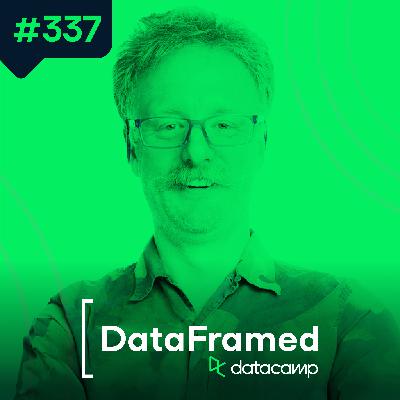

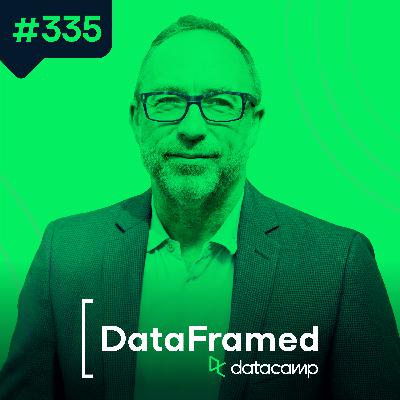

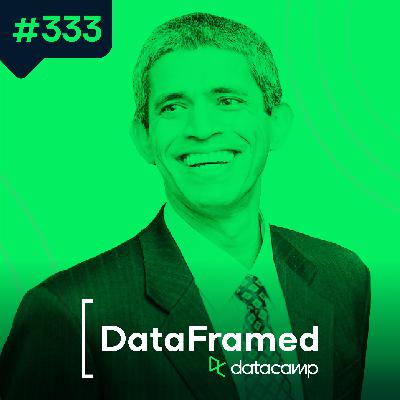
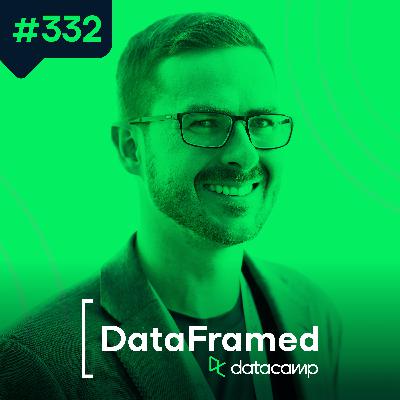
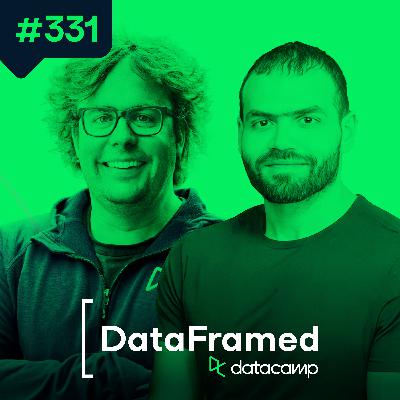
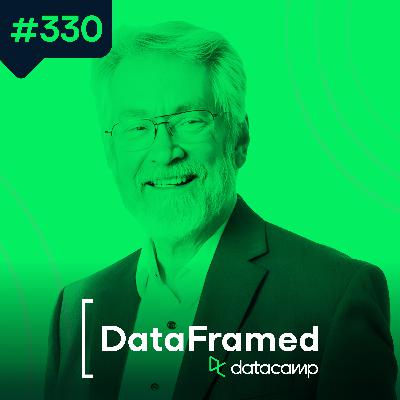
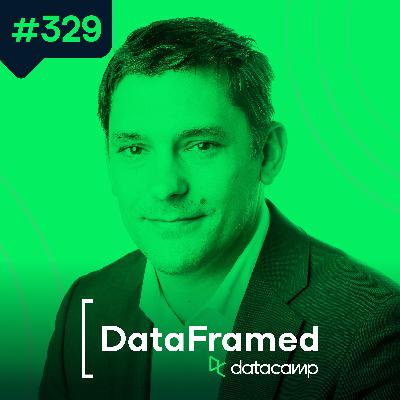

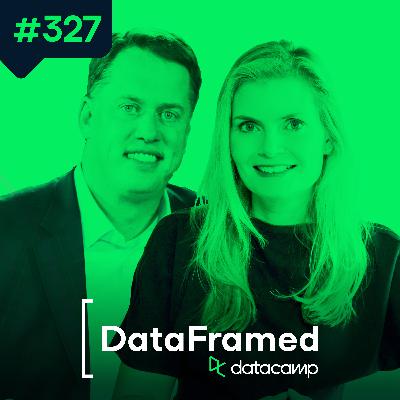
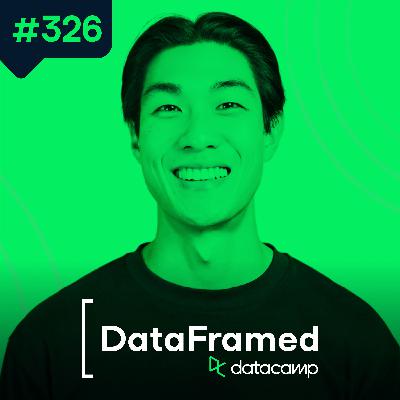
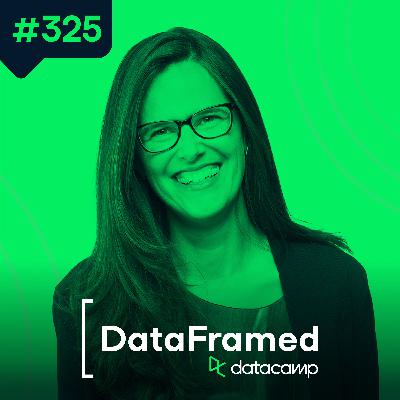
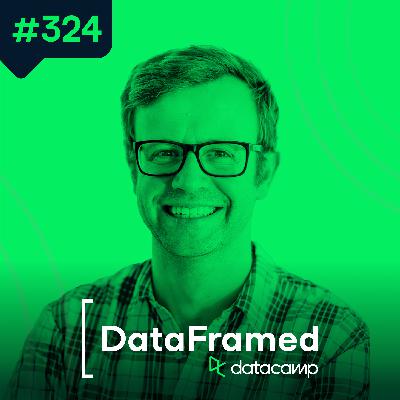
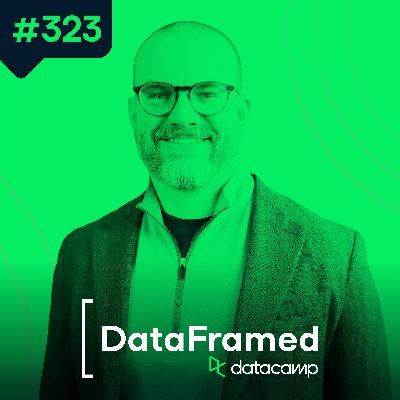
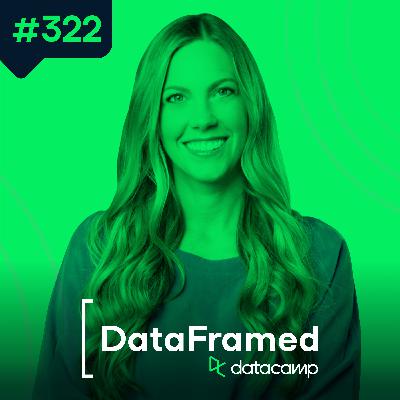
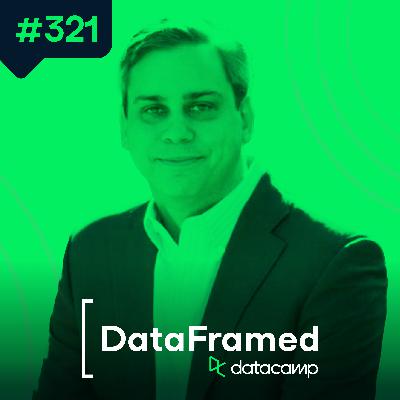
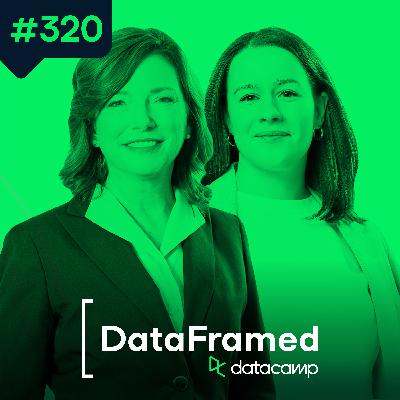
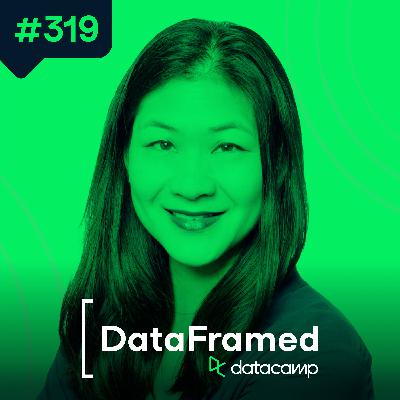



🔴💚Really Amazing ️You Can Try This💚WATCH💚ᗪOᗯᑎᒪOᗩᗪ👉https://co.fastmovies.org
can you list the tools for monitoring and so on ?
interesting interview
excuse me im just taking note here: some process with the truck guy tips how to do data science in big org with google guy from superdatascience eda explaratory analysys from tukey
Hi there, is it possible to get links to the data philanthropy organisations? I'm super curious. Thank you!
The short section about the connection between data scientists and project managers resonated with me
400 million people do not have diabetic retinopathy, incorrect statistic.
Amazing episode! How many listeners worked with Stan in R? What are their impressions over other bayesian software?
The contents are very good. Thank you for your good job
Ol
Hi Hugo thanks for this podcast. Would be great to have the relevant urls, as the shownotes and others, in the podcast description.